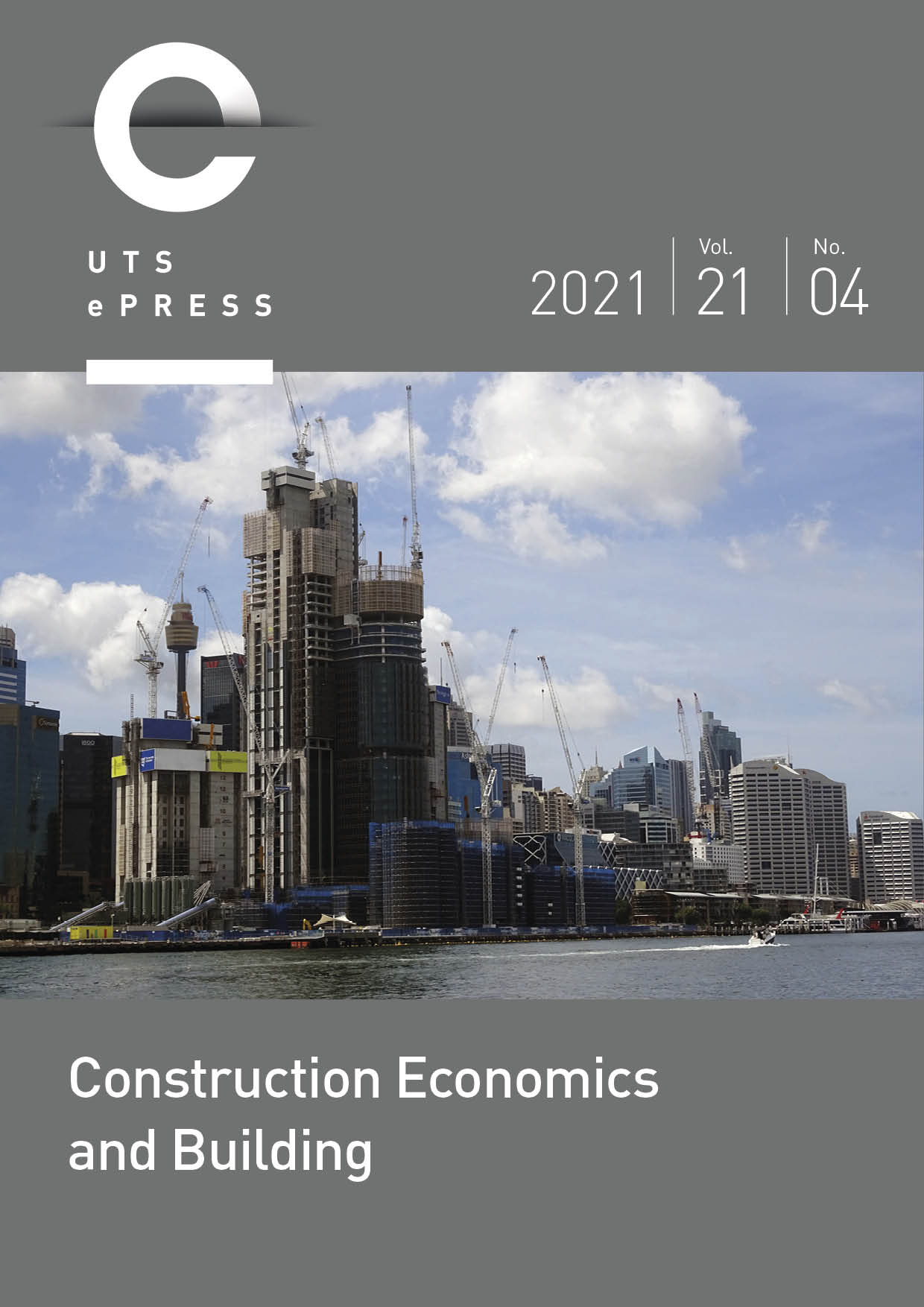Women Workforce in Construction during the COVID-19 Pandemic: Challenges and Strategies
Main Article Content
Abstract
Changes and challenges in employment are inevitable under the measures enacted to contain the COVID-19 pandemic. Early evidence suggests that the pandemic would disproportionately affect women compared to men. Focussing on women workforce in construction, this exploratory study examines the challenges associated with changes in their job situations, the adopted strategies in addressing the challenges and their opinions on employment situation of women workforce during the pandemic. Results of a content analysis show that the top ranked challenges are: (i) overworked; (ii) working space; (iii) social interactions; (iv) collaboration; and (v) parenting. The most cited strategies in addressing these challenges are: (i) increased visual communication; (ii) a dedicated workspace; (iii) self-scheduling; (iv) flexible working arrangements; and (v) breaking out work time and personal time. The evidence is suggestive that most challenges are interrelated, and the strategies adopted by the respondents are multi-level and interdependent. The results also show that the most mentioned opinion is the increased caring and domestic responsibilities among women workforce. Under the uncertainty about the duration of the pandemic and future contagion waves, these findings are critical in informing employing organizations’ human resource management challenges to better support their female employees during pandemic time and beyond.
Article Details
Section
Authors who publish with this journal agree to the following terms:
a) Authors retain copyright and grant the journal right of first publication with the work simultaneously licensed under a Creative Commons Attribution License that allows others to share and adapt the work with an acknowledgement of the work's authorship and initial publication in this journal.
b) Authors are able to enter into separate, additional contractual arrangements for the non-exclusive distribution of the journal's published version of the work (e.g., post it to an institutional repository or publish it in a book), with an acknowledgement of its initial publication in this journal.
c) Authors are permitted and encouraged to post their work online (e.g., in institutional repositories or on their website) prior to and during the submission process, as it can lead to productive exchanges, as well as earlier and greater citation of published work (See The Open Access Citation Advantage Service). Where authors include such a work in an institutional repository or on their website (ie. a copy of a work which has been published in a UTS ePRESS journal, or a pre-print or post-print version of that work), we request that they include a statement that acknowledges the UTS ePRESS publication including the name of the journal, the volume number and a web-link to the journal item.
d) Authors should be aware that the Creative Commons Attribution (CC-BY) License permits readers to share (copy and redistribute the work in any medium or format) and adapt (remix, transform, and build upon the work) for any purpose, even commercially, provided they also give appropriate credit to the work, provide a link to the license, and indicate if changes were made. They may do these things in any reasonable manner, but not in any way that suggests you or your publisher endorses their use.
